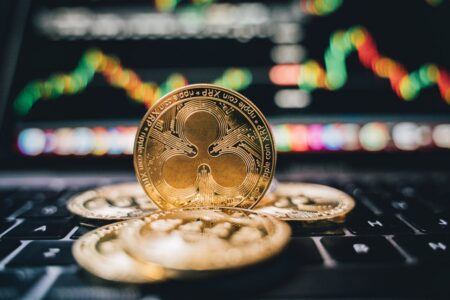Alexander Tapscott, a Canadian businessman and author who focuses on researching the emerging role of blockchain technology and cryptocurrencies, recently pointed out (via Twitter) that bitcoin (BTC) trading volumes are “skyrocketing” in Argentina.
Less reported but still as amazing is the skyrocketing #bitcoin volumes in Argentina which is having its own (albeit less severe) currency crisis. Wonder how a global EM contagion with widespread currency debasement will affect bitcoin usage in other countries? India? Brazil? pic.twitter.com/OGyAeaAnL9
— Alexander Tapscott (@alextapscott) September 14, 2018
Tapscott also commented on the ongoing economic crisis in the South American nation as the value of the Argentine peso (ARS) has dropped 35% against the USD. It now appears that Argentina is heading toward a recession due to mismanaged monetary policies.
$7 Million Weekly Bitcoin Trading
Argentine president, Mauricio Macri, has tried to revive the nation’s economy by introducing budget cuts and various austerity measures. Macri has also increased interest rates to 60 percent, which is reportedly the highest in the world.
Despite these efforts, Argentina continues to struggle and many of its citizens now appear to have more confidence in cryptocurrencies than in the traditional financial system. Significantly, weekly bitcoin trading volume on peer-to-peer (P2P) exchange, LocalBitcoins, (in Argentina) has increased to nearly $7 million.
Last year in September, BTC trading volume in Argentina, through LocalBitcoins, was only around $2 million. Commenting on this trend, Tapscott asked in his tweet: “Wonder how a global [emerging markets] EM contagion with widespread currency debasement will affect bitcoin usage in other countries? India? Brazil?”
As covered on CryptoGlobe, the citizens of Turkey revealed they had begun to increasingly invest in and use cryptocurrencies, instead of dealing with their struggling banking system. Notably, the Turkish lira fell 14% against the USD after the US administration, under president Trump, doubled the tariffs of Turkey’s steel and aluminum exports to the United States.
Turkey, Venezuela Turn To Crypto
Meanwhile, residents of Venezuela have also turned to digital currencies, as the country’s Bolivar has completely collapsed and become nearly worthless due to rampant corruption and US-led sanctions.
Although Venezuelans may not be using the controversial state-backed Petro (PTR) cryptocurrency, Dash Core Group (DCG) CEO Ryan Taylor recently revealed an average of 200 Venezuelan merchants sign up to accept payments in Dash (or digital cash) each month.
Despite the declining prices of cryptocurrencies and the regulatory uncertainty around them, many market analysts have acknowledged their long-term potential. Experienced Spanish banking professional Francisco González recently said digital currencies “are perfect.”
González, who’s the Group Executive Chairman of Spain’s second largest bank, also noted the crypto community must come together and clean up the ecosystem, as digital tokens were increasingly being used for the wrong purposes.








